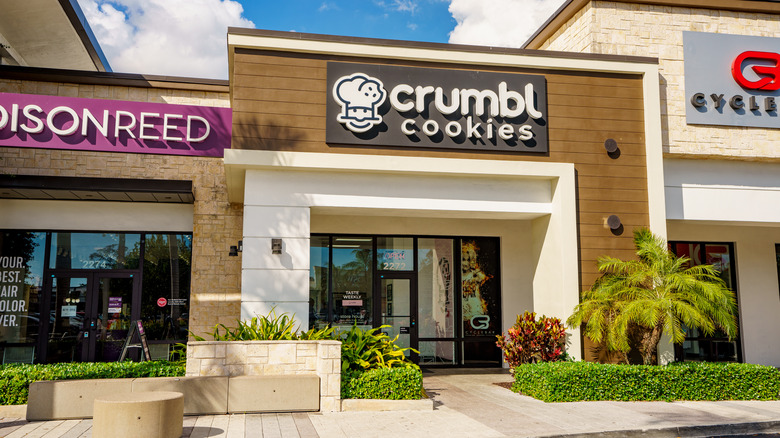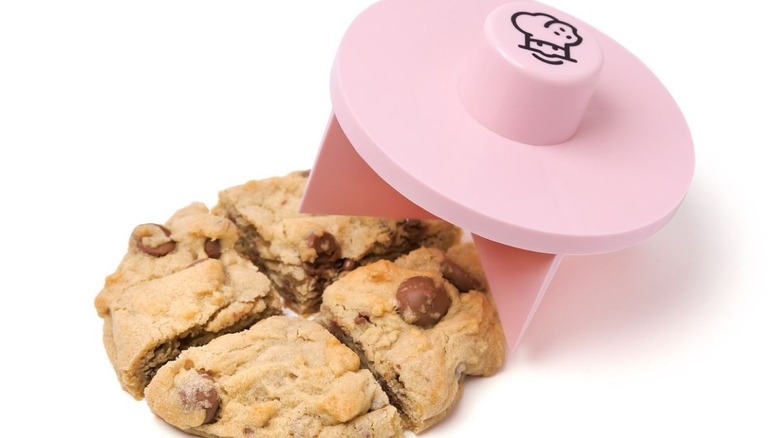Crumbl's Cookie Cutter Is Actually A Total Waste Of Money
Crumbl is America's fastest-growing dessert chain, and its business strategy is pretty straightforward: Create a sense of urgency and FOMO by rotating cookie flavors on a weekly basis. The strategy works incredibly well, considering the company sells an average of a million cookies every day. In the interest of striking the iron while it's still hot, Crumbl has added other items to its lineup — the non-cookie desserts, the (mostly pink) merch, and the peculiar cookie cutter. But even for the biggest fans of Crumbl's uniquely flavored cookies, the cookie cutter is just not worth your money.
The idea behind the cookie cutter is to cut the Crumbl cookies into equal fourths. That's it, that's all it does — nothing that you couldn't achieve with a simple knife (or even a fork) you already have at home. The plastic cookie cutter costs $5 and doesn't have any practical value beyond the brand's recognizable pink color, therefore only making sense if you're purchasing it purely for aesthetic reasons.
Some customers have found that the cookie cutter doesn't work well on Crumbl's mini cookies, and the cookies also tend to stick to the cutter, eliminating the "effortless" part of the cookie cutting the company advertises on its website. It seems this cookie cutter is just as much a disappointment as the company's leaked Thanksgiving menu.
The key part of the cookie cutter is Crumbl's Instagrammable aesthetic
Visual aesthetic is a key part of Crumbl's marketing strategy and the cute cookie cutter plays right into it. Most people wouldn't actually buy the cutter for its functional properties; they'd get it just because it's from Crumbl. Despite the fact that cutting frosted cookies and ones with toppings is still a messy business, nor does the cookie cutter fare well in the dishwasher, some people have gotten the pink cutter simply because it makes them feel a little fancier.
The feeling an "it" brand like Crumbl induces in its customers is a huge reason why the company is so successful. People want to be part of the experience they're seeing all over social media; they want to partake in the same things their favorite online influencers and celebrities do. Add to that Crumbl's lucrative wording that its cookies are supposed to be shared with others, plus its employees refusing to cut the cookies for customers in store, and it's easy to see why some locations sold out of the cookie cutter. Though, in all fairness, the limited stock of the cutters may just be another part of the FOMO strategy.

